Episodes
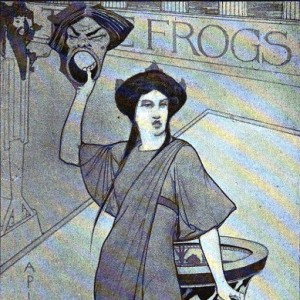
Tuesday Sep 17, 2019
Tuesday Sep 17, 2019
Athens had been at war more or less continually since 431 BC and the people on all sides were sick of it. So it may be of no surprise that in 405 BC at the Lenaia, Athens’ annual theater festival, first prize went to a comedy: Aristophanes’ “The Frogs.”
“The Frogs” comes to the modern reader as something as a surprise. The ancient play seems to have strong notes of the Shakespearean comedies, of Oscar Wilde, and of Monty Python’s Flying Circus. Which is to say, it has the feel of something that could have been written today in spite of being more than 2,400 years old.
Dr. Tiffany Schubert and Dr. Kent Lasnoski are team teaching our junior humanities course and joined me to talk about “The Frogs,” comedy, and satire beginning with the historical context in which Aristophanes wrote.
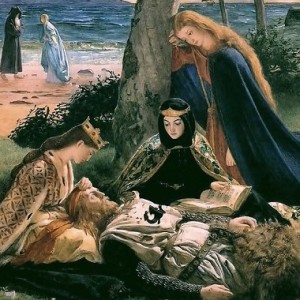
Tuesday Aug 13, 2019
Tuesday Aug 13, 2019
To judge by the piles of books, reels of movie film, games, prequels, and sequels, it’s safe to say that the stories of Camelot, the Round Table, and King Arthur hold a special place in our imaginations.
The stories surrounding Arthur have it all: love and romance; marriage and adultery; noble and good deeds, dishonorable and evil deeds; friendship and betrayal; lively feasts and deadly battles; magical swords and malicious witchcraft; heroes and villains; valiant, true, and brave knights and vile scoundrels. Camelot! It all started so well and ended so badly.
This summer, high school students attending Wyoming Catholic College’s two-week long PEAK program studied the Arthurian stories with this week's guest, Dr. Tiffany Schubert.
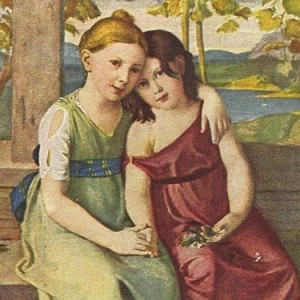
Tuesday Jul 30, 2019
Friendship in an Age of Romance by Dr. Tiffany Schubert
Tuesday Jul 30, 2019
Tuesday Jul 30, 2019
“I am distressed for you, my brother Jonathan;” lamented King David, “very pleasant have you been to me; your love to me was wonderful, passing the love of women.” (2 Samuel 1:26)
Understanding the kind of friendship that existed between David and Jonathan is difficult in our culture. In large measure this is because we tend to believe that the height of love is romantic love. The notion that Jonathan’s love to David passed the love of women thus sounds at least suspect.
But the idea that romantic love is the greatest love was not part of the culture of ancient Israel. It was not part of the culture of ancient Greece—the world of Achilles and Patroklos. It was not part of the culture of Europe until… well, Dr. Tiffany Schubert can explain. At the 2019 Wyoming School of Catholic Thought, Dr. Schubert began her discussion of the poetry of friendship by describing how the exaltation of the romantic through the poetic tradition has become a detriment to us as we try to form deep, committed friendships.
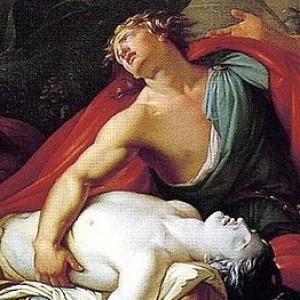
Tuesday Jun 25, 2019
Friendship Between Men in The Iliad and in Moby Dick by Dr. Glenn Arbery
Tuesday Jun 25, 2019
Tuesday Jun 25, 2019
When we came up with the theme for this year’s Wyoming School of Catholic Thought—“No Greater Gift: Friendship from The Iliad to Facebook”—we knew that we wanted Wyoming Catholic College president Dr. Glenn Arbery to discuss the friendship between Achilleus and Patrokolos in Homer’s epic.
What no one expected was that Dr. Arbery would pair the friendship between Achilleus and Patrokolos with the friendship Herman Melville described in Moby Dick, the strange friendship between Ishmael and Queequeg.
Here are Dr. Arbery’s comments.
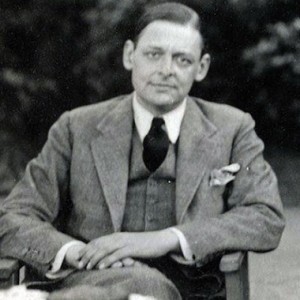
Tuesday May 14, 2019
T. S. Eliot and Life Beyond College with Dr. Glenn Arbery
Tuesday May 14, 2019
Tuesday May 14, 2019
In Wyoming Catholic College's humanities track, the last author our seniors read before graduation is poet T. S. Eliot.
While Geoffrey Chaucer in The Canterbury Tales extolled the loveliness of April when spring fills the earth with beauty and with great joy “people long to go on pilgrimages,” T. S. Eliot called April in our modern, secular age, “the cruelest month.” In his poem "The Waste Land," Eliot described the crowds of commuters with their backs turned to the glad pilgrim road to Canterbury as they slog into London for another work day.
Dr. Glenn Arbery, in addition to being our college president, has been teaching senior humanities. He is our guest this week on The After Dinner Scholar.
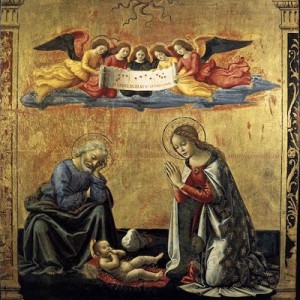
Tuesday Dec 25, 2018
Poetry for the Feast of Christmas with The Wyoming Catholic College Faculty
Tuesday Dec 25, 2018
Tuesday Dec 25, 2018
‘Twas the night before Christmas, when all through the house
not a creature was stirring, not even a mouse.
Those first lines from Clement Clarke Moore’s “A Visit from St. Nicholas” may be the most recognized line of Christmas poetry in America—or perhaps the most recognized line of any kind of poetry in America. Yet Christmas, Christ’s nativity has been the subject of many, many great poems.
As a Christmas gift to you our listeners, this Christmas podcast will focus on great Christmas poems—recited, not discussed by Wyoming Catholic College faculty. Enjoy.
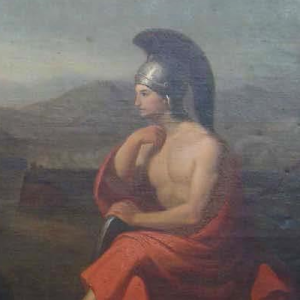
Tuesday Oct 30, 2018
Telemachus and the Birth of Wonder with Dr. Jason Baxter
Tuesday Oct 30, 2018
Tuesday Oct 30, 2018
"Tell me, Muse, of the man of many ways, who was driven / far journeys, after he sacked Troy's sacred citadel."
Those lines open Homer's epic poem The Odyssey. The story, they tell us, is about Odysseus, a great hero of the Trojan War. It's about his journeys and trials. Bracing stuff and we can't wait to get started. But Homer doesn't start. Not yet.
Instead after the exciting preview, the first four books of The Odyssey are not about the heroic Odysseus, but about his son, Telemachus who Dr. Jason Baxter describes as "adolescent, wimpy, insecure." That is, he's the polar opposite of his famous dad.
Yet it was to Telemachus that Dr. Baxter pointed to encourage our students here at Wyoming Catholic College. Dr. Baxter is our guest this week.
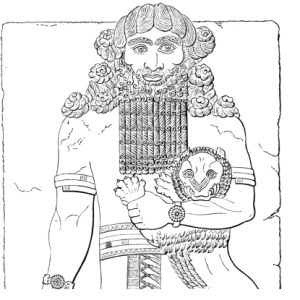
Tuesday Oct 09, 2018
Gods, Monsters, and Heroes: The Epic of Gilgamesh with Prof. Kyle Washut
Tuesday Oct 09, 2018
Tuesday Oct 09, 2018
“When the gods created Gilgamesh,” the ancient text says, “they gave him a perfect body. Shamash the glorious sun [god] endowed him with beauty, Adad the god of the storm endowed him with courage, the great gods made his beauty perfect, surpassing all others, terrifying like a great wild bull. Two thirds they made him god and one third man.”
Every year freshmen at Wyoming Catholic College struggle to find their bearings in the midst of The Epic of Gilgamesh. The epic was composed in Babylon in the mid- to late-second millennium BC. It was something of a founding myth for the Babylonian kings and the parallels between Gilgamesh and the Bible and Gilgamesh and Homer are, to say the least, intriguing.
Professor Kyle Washut has just finished teaching The Epic of Gilgamesh and is anxiously awaiting student papers reflecting on the tale. Prof. Washut is our guest this week on The After Dinner Scholar.
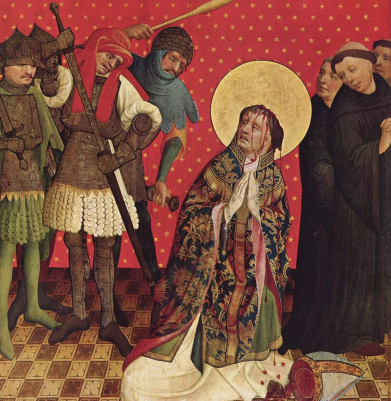
Tuesday Sep 04, 2018
Courage, Martyrdom, and "Murder in the Cathedral" with Prof. Kyle Washut
Tuesday Sep 04, 2018
Tuesday Sep 04, 2018
I see nothing quite conclusive in the art of temporal government,
But violence, duplicity and frequent malversation.
King rules or barons rule:
The strong man strongly and the weak man by caprice.
They have but one law, to seize the power and keep it.
And the steadfast can manipulate the greed and lust of others.
The feeble is devoured by his own.
Those words are from T. S. Eliot’s play “Murder in the Cathedral,” the story of tSt. Thomas Becket's martyrdom. Becket was King Henry II pal who he appointed Chancellor and then Archbishop of Canterbury. As Chancellor, Becket was Henry’s man to do the king’s will. But when he became Archbishop, something changed. He realized that he now needed to be God’s man, a decision that—given the outcomes—enraged Henry.
Prof. Kyle Washut discussed Eliot, Thomas, and what he called “Perfected Courage” at the 2018 Wyoming School of Catholic Thought. Prof. Washut is our guest this week on The After Dinner Scholar.
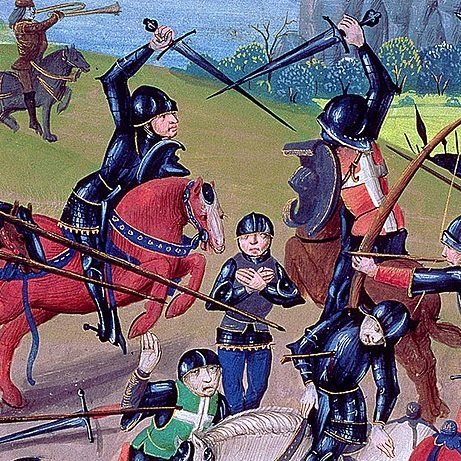
Tuesday Aug 21, 2018
Tuesday Aug 21, 2018
His dad was king of England… or at least sort of. That being the case, how does a usurper’s son create legitimacy?
After the death of Henry IV of England, Prince Hal as everyone has been calling him, has a plan to establish himself on the throne as Henry V despite his shaky claim to the crown. His success depends on careful planning, courageous battling, and--to his surprise--divine Providence.
At the Wyoming School of Catholic Thought in June, Dr. Glenn Arbery, president of Wyoming Catholic College explained how Shakespeare told the tale of Prince Hal in the play "Henry V."
Here are Dr. Arbery’s remarks in their entirety.

